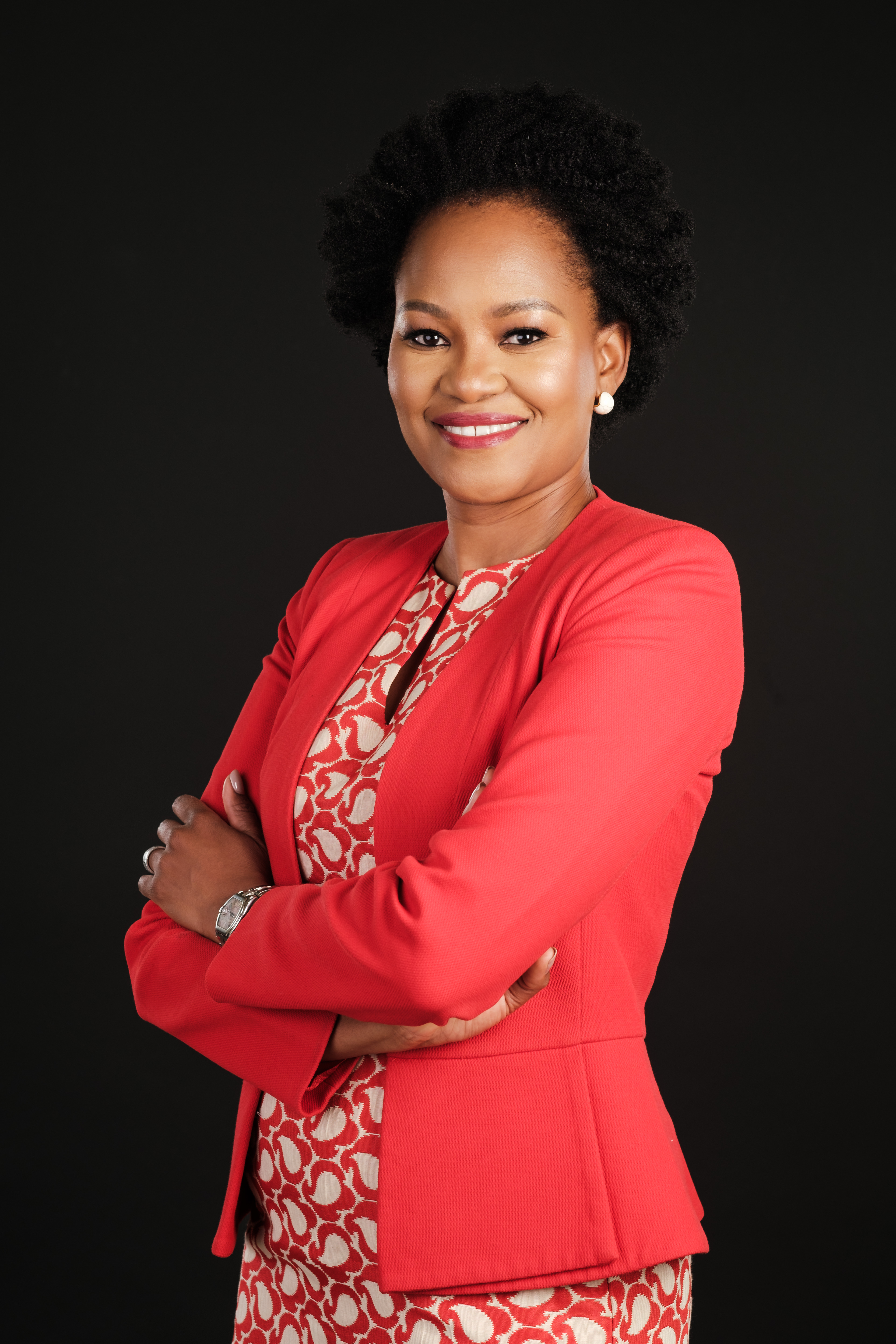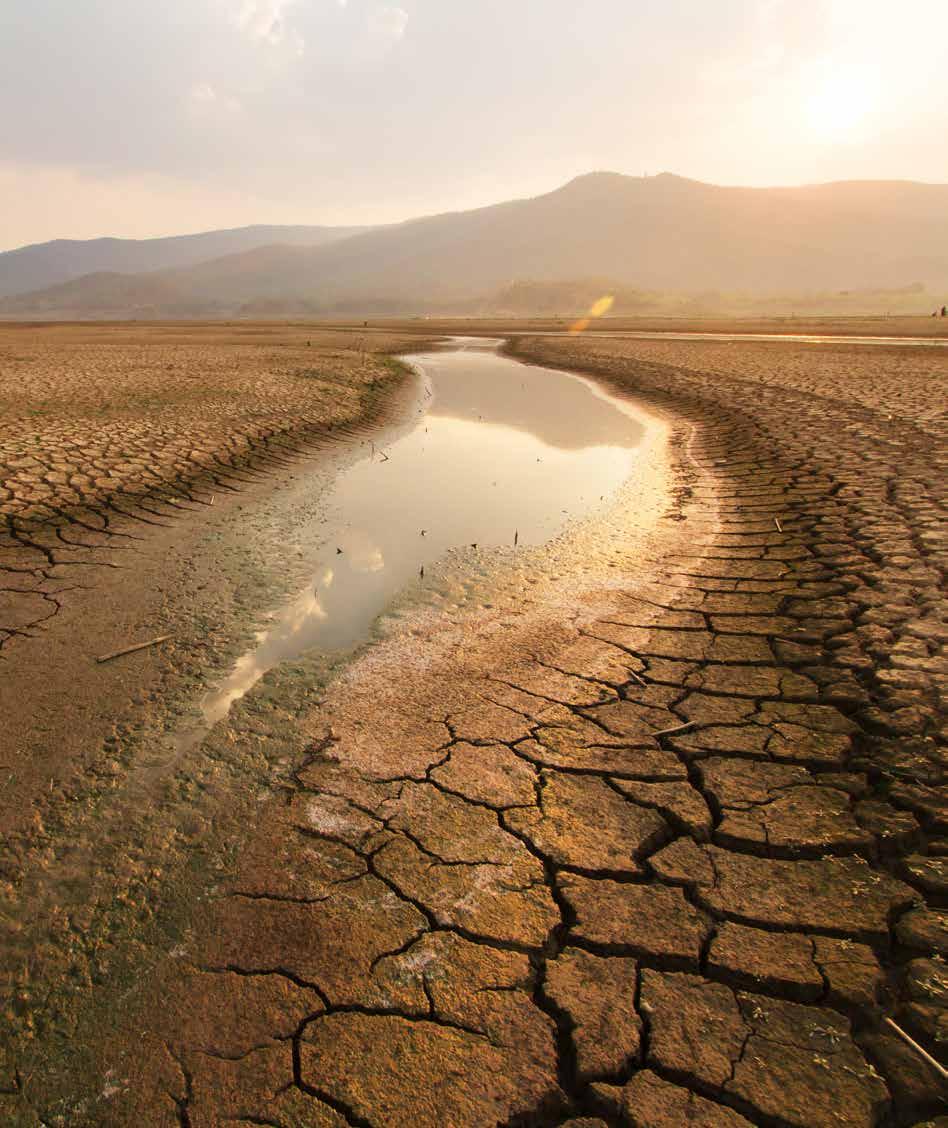
8 minute read
WOMEN - A POWERFUL FORCE IN THE FIGHT AGAINST CLIMATE CHANGE
By Itumeleng Monale, Chief Operating Officer at the Johannesburg Stock Exchange
Put women front of the queue for climate change mitigation and adaptation interventions in Africa.

Women are natural-born leaders – leading (oftentimes quietly) in their households sometimes from from the frontlines of business. However, as women are increasingly challenged to spearhead conversations around mitigation and adaptation solutions related to climate change – it is incumbent on continental, as well as global leaders to address the foundational barriers of access, inclusivity and equity that limit this reality.
Climate change, viewed through a gender-related lens, unveils the underlying story of the disproportionate consequences that negatively impact women in the developing world from climbing out of the existing structural thresholds of poverty.
In Africa, research has shown that women account for as much as 80% of the food production labour force, with more than 60% of women employed in the agricultural sector – meaning their livelihoods are dependent on climate sensitive environments. This however has not adequately catalysed the mitigation of women being vulnerable and marginalised in climate related efforts – particularly women who work in poor and rural settings, where the very foundation of food security lies.
The importance of meaningful inclusivity and equality in African sustainability-based initiatives on climate resilience has indeed become all the more pronounced today. Not only must these initiatives ensure an inclusive approach, but they are burdened with the need to simultaneously address the previous underlying societal imbalances that leave women most vulnerable. Therefore, there is a need to reframe the challenge of merely including women in these pivotal conversations - to actually meaningfully investing in women-led initiatives that empower women and shift the needle on societal norms.
AFRICA’S CLIMATE CRISIS
In February this year, Tropical Cyclone Freddy, wreaked havoc in countries such as Madagascar, Mozambique, and Malawi, as intense rainfall for over a month claimed the lives of hundreds of civilians and displaced thousands more. According to the World Economic Forum, the protracted drought affecting the Horn of Africa has led to around 23 million people acutely food insecure in Ethiopia, Somalia and Kenya. Further to this, an estimated 3.3 million people have also been displaced as a result.
South Africa itself was beset with intense and disastrous flooding in KwaZulu-Natal last year. The floods have been cited as the most catastrophic natural disaster recorded yet in the province, in terms of lives lost, homes and infrastructure damaged or destroyed and the economic impact. This is according to a new study that was released in April this year by researchers from the University of Witwatersrand (Wits) and the University of Brighton, UK.
These and more extreme weather events precipitated by climate change in Africa particularly, have further placed a burden on women as primary caregivers. The effects of climate change have also necessitated increased migration of families. The Africa Migration Report by the UN’s International Organisation for Migration (IOM) revealed that the number of international female migrants in Africa increased by 69% between 1990 and 2020.
The impact of displacement and migration as a result of natural disasters – leaves women and girls even more vulnerable to sexual and gender-based violence, trafficking, forced marriages, child mortality and exploitation. In South Africa alone, according to verifiable statistics, in 2021, around 7.6 million households in the country were female-headed. The picture is much the same for the rest of Africa, findings from the World Bank indicate that nearly one in four households in Africa are led by women.
This means that the weight of not only providing financial means for their families, but also in the provision of care of children and the household, is squarely placed on the shoulders of women.
Natural disasters such as the aforementioned, therefore strip many women of their means of income as job losses mount as a result of industries evolving and changing their dynamics. This in turn widens disparity from a Gini coefficient – a measure of the statistical dispersion of income and wealth inequality within a nation – perspective.
THE BURDEN OF CARE
According to a recent policy brief by the UN, women on average spend 4.1 hours per day on unpaid care and domestic work relative to their male counterparts who spend 1.7 hours a day. This includes more women taking on the role of caregiving of their elderly relatives or caring for sick family members.
Climate change has had an undeniable impact on the health of children in particular. Institutional insights gleaned from the Harvard T.H CHAN School of Public Health indicate that extreme weather conditions driven by the climate crisis are disproportionately increasing the risk of asthma in children. And as primary caregivers in households, the consequences of having children with special healthcare needs impact women adversely. It impacts their choices on self development, as well as their choices and sacrifices in terms of job opportunities.
TURNING THE TIDE
Despite the deeply rooted, systemic, and often patriarchally-linked challenges to gender-based investments – women are indeed leading from the front when it comes to sustainability advocacy. This is because, we know that women have a first-hand visceral experience of the gender pay-gap, as well as gender-related societal ills. However, concerted and notable efforts are being driven to address these polarities.
As the Johannesburg Stock Exchange (JSE), these efforts are noted in varying gender-linked as well as sustainability-linked bonds that are being steered by women and/or for women.
At least 70 Sustainability Bonds are specifically designed to raise money for environmentally and socially responsible initiatives.
Further, as one of the Top 20 largest exchanges in the world by market capitalisation ranked by the World Federation of Exchanges, the JSE specifically has a Sustainability Segment that is ring-fenced for environmentally responsible or climate-related projects.
These range from pollution prevention to improving energy efficiency, developing sustainable agriculture and rolling out green transportation systems – among others.
Last year, Barloworld – an industrial processing, distribution and services company with two primary areas of focus: Industrial Equipment & Services and Consumer Industries –listed two Gender Bonds on the JSE. This empowering initiative is set to increase the participation of women in its leadership structures and supply chain – and is a commendable effort that can inspire more companies to do the same.
Additionally, the JSE Enterprise Acceleration Programme – which aims to support the growth of medium-sized companies sustainably – includes companies providing climate-related and social impact solutions varying from water purification to ensure sustainability of water supply, healthcare and education.
The JSE also sponsors the Gender Mainstreaming Awards , an increasingly important initiative that is accelerating equality across the continent. The awards were developed to encourage the private sector to achieve more meaningful representation of women in the mainstream, and to prove that gender equality is core to a successful business.
MITIGATION – WHAT NEXT?
The question however remains – ‘how do we mitigate against the further degradation and disparities of not only our natural resources, but also bridge the chasm of women-led and women-sympathetic climate action?’
It begins with creating and enabling more access to venture funding for women to enter entrepreneurial ventures such as carbon capture, reforestation and water purification – among others. It also requires the inclusion of women and their voices in defining solutions in this space. It includes giving women a seat at the table.
Other key initiatives that women can and are taking advantage of, are in the biodiversity space in which initiatives to mitigate climate change have taken root. Great case studies from countries such as Indonesia have shown practically how rural communities can play a role in the carbon mitigation value chain, while benefiting economically and uplifting many lives in the process. This means that the very marginalised women in the agricultural sector in particular, have an opportunity to play a pivotal role. These initiatives which are often likely to be in rural communities – mostly populated by women- are championing climate resilience from the ground.
An innovative, and still little-understood opportunity lies in these community-based initiatives that maintain, restore and preserve natural resources; and have the potential to be placed on carbon trading platforms around the world and generate carbon credits for companies in the global market. Businesses must also find other innovative ways to enable women’s economic empowerment, financial literacy and access to mentorship.
While it is a fact that Africa produces the smallest share of global greenhouse gas emissions (GHG) at just 3.8% as opposed to developed nations which contribute a significantly higher amount, Africa has to create its own solutions to the climate crisis – which has been scientifically proven to be likely to impact the continent the hardest.
For example, South Africa’s energy crises has evoked a significant and impactful response from the private sector, which is seeing an acceleration of clean energy projects and investments. The same is needed for climate action.

There has to be a bigger impetus and ability to accelerate turning the tide around on Africa’s dire and disproportionate impacts from climate change, towards directing resources more impactfully.
Companies need to think and strategise for the long-term, producing tangible progress with sustainability in focus – especially if they intend to benefit commercially from the youngest and fastest growing continental population on the planet. This cannot and will not be done without the inclusion and equality of women in this arena.










